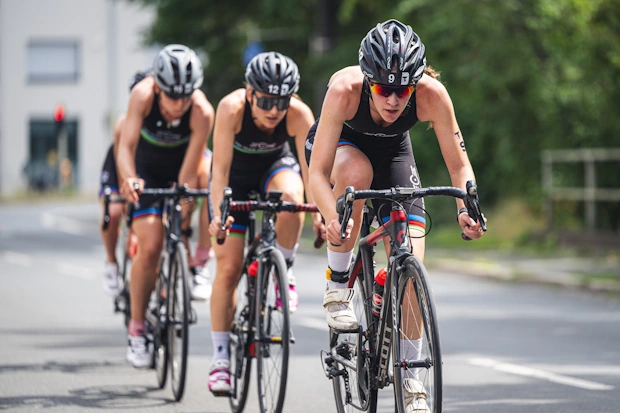
Caffeine is a widely consumed psychoactive substance that has been extensively studied for its potential to improve athletic performance.
In this article, we will delve deeper into the effects of caffeine on athletic performance, exploring how it affects various aspects of sports and exercise.
We will discuss the ways in which caffeine enhances performance, the recommended dosage for optimal results, potential side effects, sources of caffeine for athletes, the impact on endurance sports and strength training, any gender differences in response, and factors that can influence the effects of caffeine on exercise performance.
How Caffeine Affects Athletic Performance
Caffeine supplementation has been found to enhance exercise performance in multiple ways.
For instance, it can improve muscular endurance, movement velocity, muscular strength, sprinting, jumping, throwing, and aerobic/anaerobic actions. These improvements can have a significant impact on an athlete’s overall performance.
For example, a study conducted on cyclists found that caffeine ingestion improved cycling time trial performance, leading to faster times and improved endurance.
Similarly, in a study on soccer players, caffeine was shown to improve sprint performance and overall running distance, enhancing the players’ overall athletic capabilities.
However, it is important to note that the magnitude of caffeine’s effects may vary between individuals, and the optimal dose of caffeine for enhancing exercise performance is typically between 3 and 6 mg/kg body mass, with minimal effective doses potentially as low as 2 mg/kg.
Additionally, timing of caffeine ingestion, usually 60 minutes before exercise, can affect its absorption and performance benefits.
It is worth mentioning that caffeine not only improves physical performance but also has cognitive benefits.
It can enhance cognitive function, attention, and vigilance in most individuals, making it an even more valuable asset for athletes.
The Benefits of Caffeine for Sports and Exercise

Caffeine offers numerous benefits for sports and exercise, making it a popular choice among athletes. Moderate to high doses of caffeine taken before and during exercise have been shown to increase endurance performance. This means that athletes can perform at a higher intensity for a longer period of time, resulting in improved overall performance.
A study conducted on runners found that caffeine ingestion improved running time and reduced perceived exertion during a race.
Furthermore, lower doses of caffeine (<3 mg/kg body mass) have also been found to enhance endurance performance without causing physiological changes or side effects. This is particularly noteworthy as it allows athletes to improve their performance without any negative consequences.
In addition to endurance sports, caffeine has been found to be effective in improving performance in short-term high-intensity exercise and team stop-and-go sports. It enhances an athlete’s ability to perform explosive movements and maintain a high level of intensity throughout the game or competition.
The ergogenic effects of caffeine are primarily due to its interaction with adenosine receptors in the central and peripheral nervous systems, which leads to increased central drive and reduced perception of effort and pain during exercise. This means that athletes feel less fatigued and can push themselves harder, resulting in improved performance.
Recommended Dosage of Caffeine for Optimal Performance

Determining the optimal dosage of caffeine for performance enhancement is crucial to ensure athletes reap its benefits without experiencing any negative effects.
The recommended dosage typically falls between 3 and 6 mg/kg body mass, taken 60 minutes before exercise. This range has been found to be effective for improving exercise performance.
However, it is important to note that lower doses of caffeine (<3 mg/kg body mass) can still enhance endurance performance without causing physiological changes or side effects.
The dosage can be adjusted based on an athlete’s individual response and tolerance to caffeine.
Timing of caffeine ingestion is also a critical factor to consider. Research suggests that consuming caffeine 60 minutes before exercise allows for optimal absorption and performance benefits.
However, the timing may vary depending on the source of caffeine and an individual’s personal preferences. It is recommended that athletes experiment with different timing strategies to determine what works best for them.
Potential Side Effects of Consuming Too Much Caffeine
While caffeine can have positive effects on athletic performance, it is essential to be mindful of the potential side effects associated with excessive consumption.
Moderate to high doses of caffeine (5-9 mg/kg body mass) can cause side effects such as gastrointestinal upset and disturbed sleep. These adverse effects can negatively impact an athlete’s overall well-being and performance.
To avoid these issues, it is crucial to find an appropriate dosage that provides the desired performance benefits without inducing negative physiological changes or side effects.
Athletes should carefully monitor their caffeine intake and consult with a healthcare professional or sports nutritionist to determine the optimal dosage for their individual needs.
Caffeine Sources for Athletes

Athletes have a variety of caffeine sources to choose from, depending on their personal preferences and convenience.
Some common sources of caffeine include coffee, energy drinks, capsules, sports drinks, gels, gum, bars, and dissolvable mouth strips.
Each source has its own unique characteristics, and athletes should consider factors such as taste, portability, and the potential side effects of different sources when making their choices.
It is worth noting that alternative sources like chewing gum and energy gels can also improve performance, primarily in aerobic exercise. These sources offer additional options for athletes seeking to incorporate caffeine into their routine.
For example, a study on triathletes found that caffeine gum improved cycling and running performance in both trained and untrained individuals, making it a convenient and effective source of caffeine.
Athletes should experiment with different sources to find what works best for them in terms of taste, convenience, and performance-enhancing effects.
Caffeine and Endurance Sports

Endurance sports can greatly benefit from caffeine supplementation, particularly in challenging environments such as hot and high-altitude conditions. Caffeine has been shown to improve both aerobic and anaerobic performance in endurance sports, making it a valuable tool for athletes in this domain.
For example, a study on rowers found that caffeine ingestion improved rowing performance and increased power output during high-intensity intervals.
Similarly, in a study on triathletes, caffeine supplementation was found to enhance cycling performance in a simulated race.
The ergogenic effects of caffeine on endurance sports can be attributed to its ability to enhance fat oxidation, reduce the perception of effort, and delay fatigue. This means athletes can perform at a higher intensity for longer periods of time, leading to improved overall performance in endurance-based activities.
Caffeine and Strength Training
Caffeine has also been found to have positive effects on strength training, improving various aspects of performance.
It has been shown to enhance power, total weight lifted, and sprint performance, making it a valuable supplement for athletes engaged in strength-based activities.
For example, a study on resistance-trained men found that caffeine supplementation improved lower body power output and upper body strength, allowing participants to lift heavier weights and perform at a higher intensity.
Similarly, in a study on recreationally active men, caffeine ingestion improved squat jump performance, indicating an enhancement in lower body power.
It is worth noting that the effects of caffeine on strength training may be more pronounced in men compared to women. This suggests that gender differences can play a role in how individuals respond to caffeine supplementation in terms of strength-based activities.
Differences Between Men and Women in Caffeine’s Effects on Athletic Performance

Research indicates that there are differences between sexes in terms of caffeine’s effects on athletic performance. Specifically, studies have found variations in response to caffeine supplementation on anaerobic performance, with a greater ergogenic effect observed in men compared to women.
However, for aerobic performance and fatigue index, caffeine supplementation produced similar benefits in both men and women.
For instance, a study on male and female cyclists found that caffeine ingestion improved time trial performance and increased power output in both sexes.
Similarly, in a study on male and female runners, caffeine supplementation improved running performance and reduced perceived exertion without any significant differences between the genders.
These findings suggest that while there may be variations in response to caffeine between men and women in certain aspects of athletic performance, the overall benefits can still be experienced by both genders.
Factors Influencing the Effects of Caffeine on Exercise Performance
Several factors can influence the effects of caffeine on exercise performance, and it is important to consider these when incorporating caffeine into an athlete’s routine.
Dosage, ingestion time, habitual caffeine consumption, and genetic factors are among the key factors that can impact an individual’s response to caffeine.
Research suggests that genetic variations, such as differences in the ADORA2A gene, can influence the response to caffeine and should be taken into account when developing personalized nutritional strategies.
Additionally, an athlete’s gender, tolerance, and sensitivity to caffeine can also influence the effectiveness of caffeine supplementation on exercise performance.
It is worth noting that more research is needed to fully understand the relationship between these factors and the effects of caffeine on athletic performance.
Future studies should explore gender differences in response to caffeine supplementation and the timing of exercise to gain a deeper understanding of how these factors interact with caffeine’s effects.
Summary and Key Takeaways
In summary, caffeine supplementation has been shown to enhance athletic performance in various ways, including improvements in endurance, power, and cognitive function. The optimal dosage for performance enhancement falls between 3 and 6 mg/kg body mass, taken 60 minutes before exercise. However, lower doses of caffeine can still improve performance without causing adverse effects.
Timing of caffeine ingestion is crucial, and athletes should experiment to find the most effective timing strategy for their individual needs. While caffeine offers numerous benefits, it is important to be mindful of potential side effects associated with excessive consumption.
Note: The information provided in this article is based on scientific research and may vary depending on individual circumstances. It is always recommended to consult with a healthcare professional or sports nutritionist before making any changes to your caffeine intake or exercise routine.